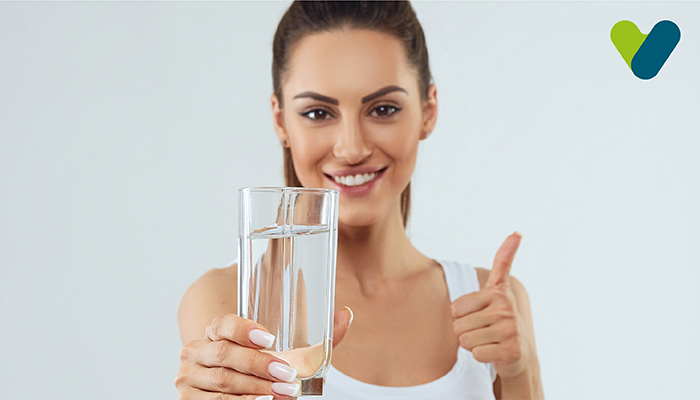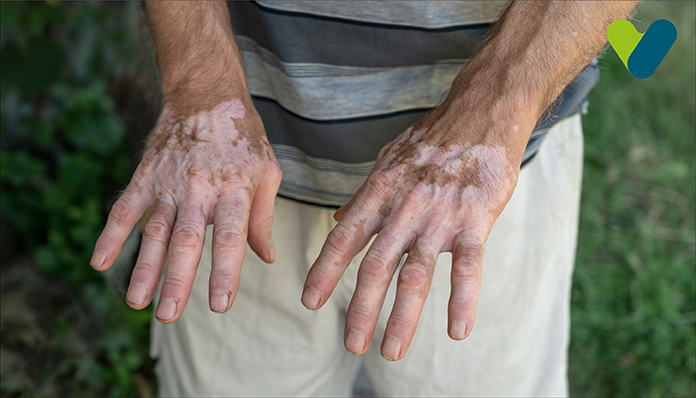Optimizing water intake is one of the most straightforward diet advice to follow. Rani decided that her 2021 resolution would be to achieve that goal. But how much is enough water? The internet is filled with contrary advice that can feel confusing. Some sites swear by two liters of water daily, and others advise eight glasses of water per day. And there are also web pages that declare that consuming excess water will destroy your kidneys. Rani didn't want to make a mistake, so she consulted her physician for answers.
It turns out it is possible to drink too much water. And water requirements vary with each person. The best way to look at water intake is by an individual. A scientific approach to water intake is focused on body weight. Aside from weight, several other factors determine ideal water intake. Read on as we explain the different elements in detail.
Water Intake Based on Weight
Drinking water according to weight is an acceptable criterion. But what does that mean in practice? Experts recommend that ideally, a person must drink between half an ounce and an ounce of water every day for each pound they weigh. If you are trying to calculate drinking water according to weight for yourself, consider this example. For an individual who weighs 150 pounds, the daily water intake according to weight would mean 75 to 150 ounces of water a day.This formula would change if you live in a hot climate, are an athlete, or are just someone who indulges in extreme physical activity daily. A sedentary individual residing in cooler weather would need less drinking water according to weight as they would be expending less water.
Water Intake Based on Activity
If you are calculating drinking water according to weight, you need to change quantities based on your level of physical activity. For example, if you are extra active during the day or your work involves many walking or standing around, you'll need to increase your water intake compared to someone with a primarily desk job. Similarly, if you exercise a lot or do any intense physical activity, your water intake will need to be modified to cover that loss.Water Intake Based on Weather Conditions
This is a no-brainer. Weather conditions and location will impact the amount of water your body needs. If you live in a hot or humid area, you'll need to increase the value when calculating drinking water according to weight. People who live in the mountains or at a high altitude (over 8,200 feet above sea level) will need to do the same. Your body will also need more water during the summer months.Water Intake Based on Health
When calculating drinking water according to weight, make a note of your health conditions. If you are perfectly healthy, go by the general calculations of drinking water according to weight. However, if you have an infection or a fever, you may need to up your intake. This is because fever or disease causes the body to lose fluids which then need to be replenished. Aside from occasional illnesses like fever, you may have to recalculate the amount to drink if you suffer from chronic health conditions like diabetes.Water Intake Based on Age and Gender
Drinking water according to weight is also affected by gender and age. That means that the calculations for drinking water according to weight will change based on your age and gender. Research shows that healthy resting adults need to consume around 0.2 per cent of body weight of water during a day. On the other hand, children and teens need about 6-8 cups of water a day.The Institute of Medicine recommends that men consume 13 cups or around 3 liters of water each day. For women, the recommendation is for 9 cups (over 2 liters) of fluid each day. Pregnant women need to drink a little more- around 10 cups and breastfeed around 12 cups.
How to Tell if You’re Drinking Too Much Water
Believe it or not, it is possible to be drinking too much water. While rarer than the consequences of not drinking enough water, water toxicity is a genuine concern. When you consume excess water, you may get water intoxication or experience disrupted brain function. Excess moisture causes the brain cells to swell, causing pressure on the brain, and consequently, people experience confusion and headaches. In extreme cases, this may also result in high blood pressure and low heart rate. The following signs help to show if you are drinking too much water or in danger of water intoxication:- Frequent bathroom trips: An obvious sign of drinking too much water is if you feel the need to relieve yourself frequently. In general, people urinate around 6-8 times a day. But if you find yourself visiting the bathroom more than ten times without any other qualifying reasons like exercise, chances are you may be drinking too much water.
- Urine color: An extremely effective way to tell if you are drinking enough water is to monitor the color of your urine. Ideally, it should be pale yellow, and clear pee is fine. But if the pee is often clear, chances are you consumed too much water in a short span.
- Drinking water without feeling thirsty: If you are consuming water without any thirst to achieve a water goal, chances are you are drinking too much water. Thirst is the body's cue that you should be drinking water. In its absence, you should best avoid drinking.
- Frequent lasting headaches: Headaches are often the consequence of both hydration and dehydration. When you drink too much water, your body's salt levels go down, causing the cells to swell. This puts pressure on the skull causing throbbing headaches.
- Tiredness or fatigue: Like drinking water helps cure fatigue, drinking too much water can also cause fatigue and exhaustion. Excess water causes your kidneys to work overtime. This creates a reaction causing you to feel tired and stressed.
- Nausea/vomiting: Too much water in the body causes the kidneys to struggle with removing excess liquid. This, in turn, can cause nausea, vomiting, and diarrhea.
Balanced Water Intake for Healthier Life
The bottom line is, while there are many scientific measures of calculating water intake, the most accurate assessment is by instinct. Instincts also come into play because the daily water consumption does not just include actual water but water from other sources like tea or the food you eat. 20 % of daily fluid intake comes from food. Therefore, an accurate calculation may not always be possible. Balanced water intake is key to a healthier life - more energy, better functioning bodily systems, and in some cases, even weight loss. It is vital to keep hydrated throughout the day and replenish the second you start feeling thirsty.A great way to keep yourself in check is by using a water monitor or app. Several apps keep you updated about water intake, remind you when you need to drink again, and show you the exact amounts you have consumed. Use them. Remember overdoing it is a genuine concern. So go by how you feel to decide how much to drink. For example, if you feel a headache coming, it is possible that you are not drinking enough water. Research suggests that dehydration can cause headaches. Similarly, if you feel tired and unable to accomplish your daily exercise goals, water could be the culprit again. Check your water intake and see if the condition changes.


